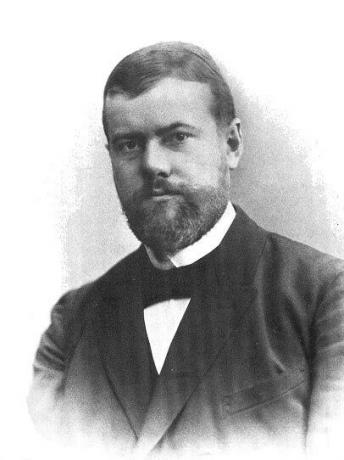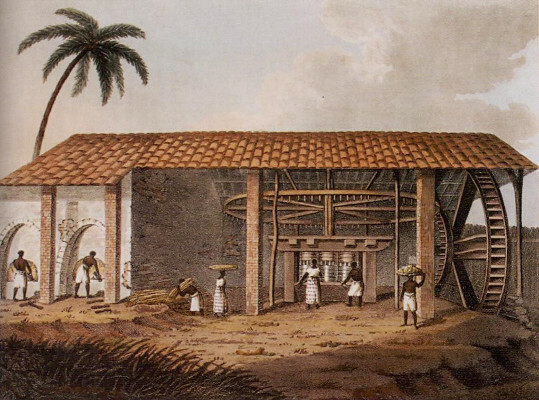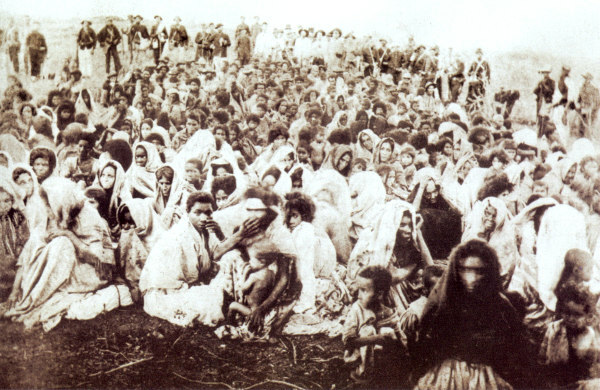THE domination for German sociologist Max Weber is a social phenomenon intrinsic to all societies and present in several social relationships. for the thinker of Sociology, legitimate power relations are established in a macro-political sphere defined by strong institutions such as the state, or on social relationships based on enduring social constructions, such as tradition. In his work, the sociologist distinguished domination and power as different phenomena, but belonging to the same sphere.
Read too: Émile Durkheim: one of the founders of sociology
Power to Max Weber
Max Weber establishes that the power is the imposition of the will of a person or institution on individuals. When someone tries, by physical, state, legal or authority force, to impose his will on individuals, that person is exercising power. In Weber's words, "power means all probability of imposing one's will in a social relationship, even against resistance, whatever the basis of this probability"|1|. Thus, power does not depend on people's acceptance of the exercise of their will..

When the exercise of power comes from an individual, it has the smallest scope, unless that individual represents the State. When the exercise of power is part of the State, it reaches a greater number of people and has a greater chance of being a legitimate power.
Difference between power and domination
In Weber's theory of the organization of society, the difference between power and domination is simple. These two elements are like two poles of the same design: power is a kind of emission, while domination is a kind of reception.
While power is the exercise of will about individuals, domination is acceptance and subordination from individuals to the power exercised by someone else. Thus, the legitimacy of power is conferred by legitimate forms of domination, that is, whether individuals accept certain types of power exercised by someone, these individuals themselves confer the legitimacy of domination and, consequently, of the power that someone exercises.
Domination would be, in Weber's words, "the probability of finding obedience to specific (or all) orders within a certain group of people"|2|. That is why, domination (which is legitimized by acceptance) confers authority on those who exercise power.
See more: Michel Foucault: another philosopher who dedicated himself to the study of power
Types of legitimate domination
In order for the exercised power to be legitimate and provide the agent of power with some kind of authority, it is necessary that the domination fits into one of the types of legitimate domination. For Weber, there are three types of legitimate domination that form in societies.
legal domination
This type of domination is the most official form of legitimacy of domination, as she settles down through a social convention established between the individuals of the same society. According to contractualist theory of formation of society (theory first developed by two modern English philosophers, a defender of the monarchic state absolutist – Thomas Hobbes – and another advocate of liberal parliamentarism – John Locke |3|), society is established through a kind of pact between citizens so that they have their natural rights guaranteed.
The society was formed, according to the contractualists, through a pact of all the members, having, then, to submit all to its body of laws and rules. Weber understands the State as an element that starts from a principle similar to the principle seen by the contractualists, that is, as a common element that subordinates people to their legal authority for good of themselves. O state, for Weber, is an institution that holds a monopoly on force and violence through legality to prevent individuals from exerting force and violence. For the sociologist, if individuals were not violent, the State would be unnecessary.
Examples of legal domination are the force of laws, the use of force by the State through the police and the army against the population and the individuals, who, for the most part, in a situation of social normality (when there is no chaos and crisis) accept the power exercised by these institutions. In order for legitimacy to be conferred on the State, however, there must be an entire legal and correct process for the enactment of laws and the actions of States must be subject to the laws.
This type of power is established by the competence of the power agent to exercise authority and there is a kind of stability of power and authority in that case.
traditional domination

This form of domination is conferred by the form of respect for tradition. The most common way of establishing this authority comes through the systempatriarchal, that dominates society, in which the figure of the patriarch or lord is a figure of leadership and those subjected to that leadership are his subjects or servants.
In this type of domination, there is a implicit moral relationship where the standards morals confer the tradition of the exercise of power by the patriarch. We can take several examples of traditional domination when interpreting Weber's work. One is the authority of God and the authority of a priest as God's chosen one to convey his message. Another example is the patriarchal family, in which the leader exerts a power that is traditionally obeyed.
In that case, there is no need for a leadership competency. for the conference of authority, since it is tradition that confers such authority. This type of domination also confers a stability of domination, since tradition is something that is perpetuated for a long time in a society.
In the period of great sugar production in the Colonial Brazil, the model of patriarchal familyperfectly exemplifies traditional domination, because the planters were patriarchal leaders who had under their tutelage their wife, children, plantation slaves and household members. All these people lived on the plantation owner's property and respected his power because of the traditional order.
charismatic domination
This form of domination occurs through the charismatic capacity that a person has to mobilize the masses and lead the people. Generally, subjects of this type of person bestow a devotion on the charismatic leader not only for his leadership personality, but also for his belief and faith.
The charismatic leader holds a kind of mystical force which makes his followers place in him the hope of change or right action. In this type of domination, there is no evidence of competency requirement for the leader to exercise power and, according to Weber, is the most unstable form of domination, since all of a sudden the subjects can lose the charm of the charismatic leader.

As an example of this form of domination, we can observe the great charismatic leaders, who with their persuasion power they mobilized masses and kept followers under their authority. An example of this type of domination in Brazil occurred with the northeastern prophet Antônio Conselheiro, who, through his ability to charismatic leadership, founded the community of Canudos, an alternative community in the Northeast against the established power of the colonels. In the world, we can choose hitler as a personality who exerted strong charismatic domination in Germany Nazi.
Grades
|1| WEBER, Max. Economy and Society: Fundamentals of Comprehensive Sociology. 4. ed. Brasília: Editora Universidade de Brasília, 2009, vol. 1, p. 33.
|2| WEBER, Max. Economy and Society: Fundamentals of Comprehensive Sociology. 4. ed. Brasília: Editora Universidade de Brasília, 2009, vol. 1, p. 33., p. 139.
|3| For contractual philosophers, there was a kind of social pact that individuals made. Individuals gave up part of their freedom to gain, in exchange, other natural rights, such as conservation of life and safety, according to Hobbes, and the guarantee of the right to property, according to Locke. Hobbes defended the need for a strong and absolutist state to guarantee the people stability and social peace and avoid chaos. For Locke, the state should have its power submitted to a legislative body established by a parliament, in order to guarantee that the right to property was conferred on everyone.
By M. Francisco Porfirio
Philosophy teacher
Source: Brazil School - https://brasilescola.uol.com.br/sociologia/dominacao-para-max-weber.htm


